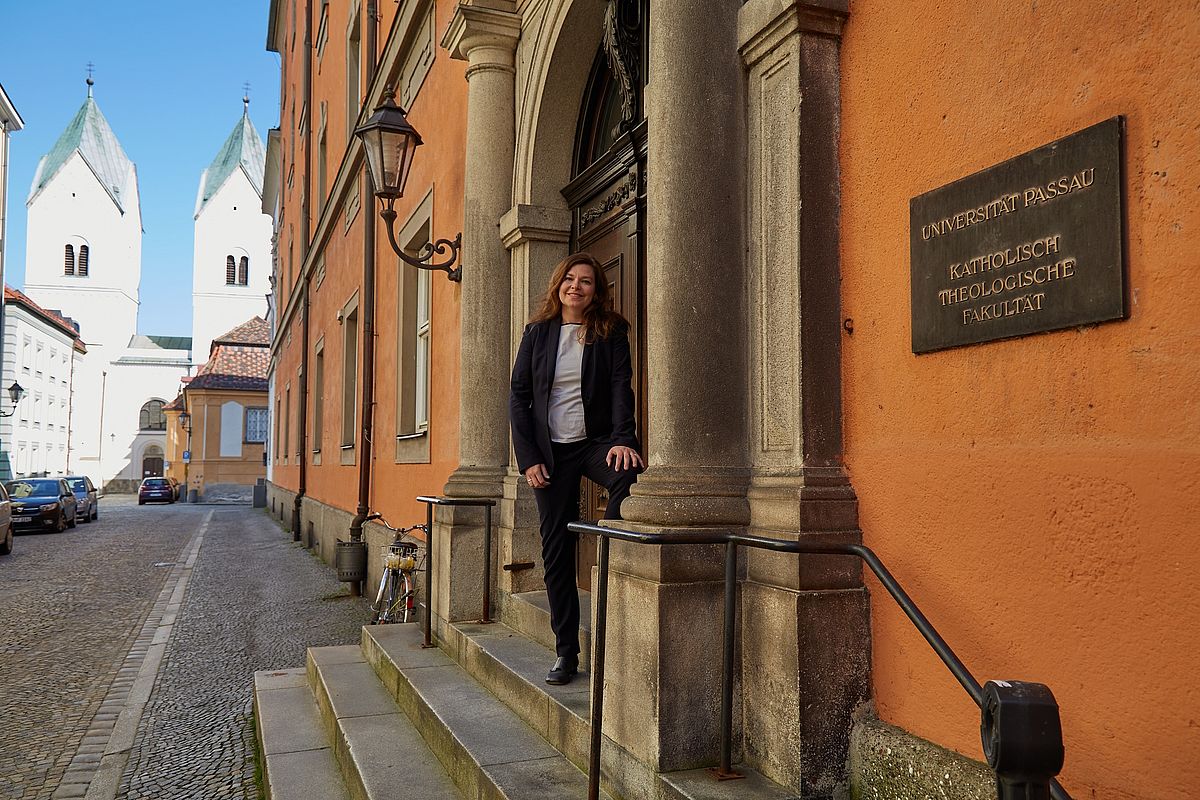This article comes from the 3/2020 issue of the transfer magazine 'TRIOLOG. Science – Economy – Society in Eastern Bavaria' with the emphasis on sustainability. The university consortium Transfer and Innovation in Eastern Bavaria (TRIO) is a project of six East Bavarian universities, in which the University of Passau is also taking part. The project is being funded from the programme 'Innovative University' by the Federal Ministry of Education and Research (BMBF) and will run for five years. TRIO sees itself as an initiator of innovations in Eastern Bavaria. It aims to expand and actively organise the transfer of knowledge and technology and intensify the exchange between science, economy and society in the region.
The definition of sustainability from the Brundlandt Report of 1987, named after the former Norwegian prime minister Gro Harlem Brundlandt, has had a significant influence on the discourse on sustainability. In it, sustainability is defined as a development that satisfies the needs of the present without risking a situation in which future generations are not able to satisfy their own needs. In 1998, the Bundestag's select committee on the 'protection of humans and the environment' formalised the idea of sustainability in German politics as the conception of a permanently sustainable development of the economic, environmental and social dimensions of human existence.
One of the best known and most widespread sustainability models is based on this division into environmental, economic and social, often also referred to as the triple bottom line: the three-pillar model. According to it, sustainability stands on three equal pillars: environmental, economic and social. The economic pillar is understood as a regulatory framework that should serve the public welfare.
This three-pillar concept, however, is now often questioned and criticised, particularly with regard to a global world economy. But in fact it is the model with the greatest range and acceptance. Accordingly, it constitutes the basis of all forms of sustainability reporting, for example the Global Reporting Initiative (GRI), the German Sustainability Code and the Public Welfare Assessment (Gemeinwohlbilanz).
An example of an approach from sustainability and environmental ethics which sets aside the idea of equal rights for these environmental, economic and social pillars is the concept of 'strong sustainability' (after Professor Konrad Ott and Dr Ralf Döring), in which the environmental aspect and the so-called natural capital – raw materials, resources and the like – have priority.

Dr Annekatrin Meißner
How can sustainable economy be structured?
How can sustainable economy be structured?
Dr Annekatrin Meißner is managing director of the Institute of Applied Ethics in Economy, Education and Training (Ethik WAW). The institute, led by Professor Peter Fonk, carries out interdisciplinary research and teaching on the topics of economic and corporate ethics and sustainability, and works together closely with organisations and enterprises from the region.
Sustainability management
‘Sustainable management aims to pay heed to aspects of eco-efficiency, conservation of resources and responsibility in management decisions.’
Given the urgency of the current situation, enterprises and organisations wish to – and must – incorporate concepts and instruments for sustainable management for the improvement of social, environmental and economic aspects in the way they work. This can be done for example by strengthening employees' rights in the supply chain, involving stakeholders in the sustainability process, or introducing an environmental management system (ISO 14001, EMAS) or corporate environmental information systems. Corporate Social Responsibility (CSR) strategies also offer such a possibility. For enterprises with more than 500 employees, this non-financial reporting is now obligatory.
Going beyond sustainability management, corporate models such as sustainable entrepreneurship have set themselves the goal of resolving challenges in the area of sustainability on an economic basis – and making a profit at the same time.
Economic ethics
‘At present, the debate about sustainability and in politics relating to this topic lacks a vision: where is it we want to go? How do we want to run sustainable economies? What framework conditions do we need to change to do that, and how?’
Economy is a part of society – or rather, says Annekatrin Meißner, that is at least how it should be understood. The basic principles of economy need to be discussed anew and possibilities need to be gauged as to how efficiency and other values can be combined. Economic and corporate ethics provide the scientific basis for this.
The guiding principle of green economy, which invests in technology-based innovations to achieve growth in an environmentally sound and socially acceptable way, is only one option, but it is being examined critically because of rebound effects that may occur.
Examples of other ideas and forms in which sustainable economy could be given a radically different structure include post-growth economy, which invests in the reinforcement of local and regional structures and sufficiency (as little consumption of raw materials and energy as possible), and subsistence (economy of demand). In solidarity economy, it is cooperation between all those involved at eye-to-eye level that is to the fore. Economy for the common good denotes an economic system built on values that promote the common good, whilst recycling economy follows the cradle-to-cradle approach, ensuring the reuse of all the raw materials deployed. The restart of the economy after the Corona crisis can also be perceived as an opportunity to plot a course towards a sustainable economic order.
SMEs and sustainability
’In many enterprises, the topic of sustainability has not yet had much of an external impact, but that is a thing that has now begun to change.’
Entrepreneurs are becoming aware that they need to do something. Also with regard to future employees, for whom the question of whether they can actually identify with what the enterprise and they themselves do is beginning to play a more and more important role. But often, managers lack experience and knowledge in respect of how to deal with the questions of what society expects of them and what 'sustainable' actually means. Important for SMEs, above all, is to be concerned with their own values, to find out what contributions they themselves can make and where things can be changed in the value-added chain. It helps here to discuss these issues openly, ask questions, and link up with other entrepreneurs, scientists or institutions such as start-up centres.
Corporate Social Responsibility (CSR) describes the responsibility enterprises have with regard to the impacts of what they do on society. This comprises social, environmental and economic aspects such as fair business practices, the sustainable deployment of resources, and regional commitment. Since 2017, in the context of the federal government's Act for the Transposition of the CSR Directive (CSR-RUG), enterprises in Germany which have more than 500 employees and are listed on the stock exchange have been under obligation also to provide information on non-financial aspects, i.e. environmental and social data.
So-called social enterprises offer products or services which make a contribution to societal progress. It follows that social entrepreneurship does not merely gear itself to market requirements, but far rather to current societal needs. At the University of Passau, both the Chair of Business Administration with the emphasis on Organisation, Technology Management and Entrepreneurship, held by Professor Carolin Häussler, and the Chair of Business Administration with the emphasis on Strategic Management, Innovation and Entrepreneurship, held by Professor Andreas König, occupy themselves with social enterprises.
At the University of Passau, students can come to grips in an interdisciplinary and cross-faculty approach with the topic of sustainability and the economy, for example in the master’s module 'Sustainability and Business Ethics' or the bachelor module 'Global Justice & Business Ethics'. In the sub-module 'Applied CSR', they work together closely with ZF Friedrichshafen AG, whilst in the sub-module 'Social Entrepreneurship' they have the possibility of developing their own sustainable business ideas with the founders of successful start-ups such as the Regiothek, Conceptnext and Spoferan as tutors.





